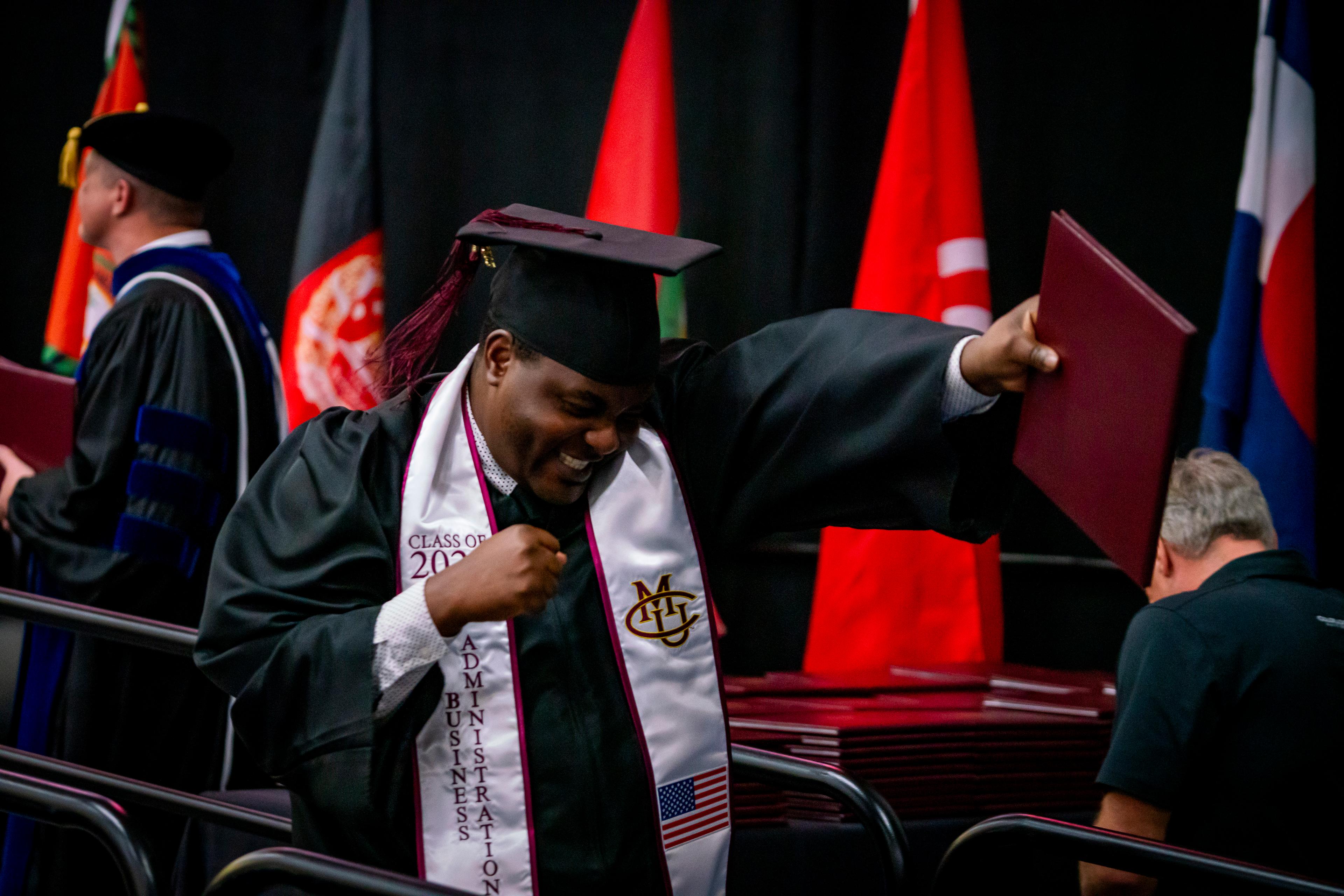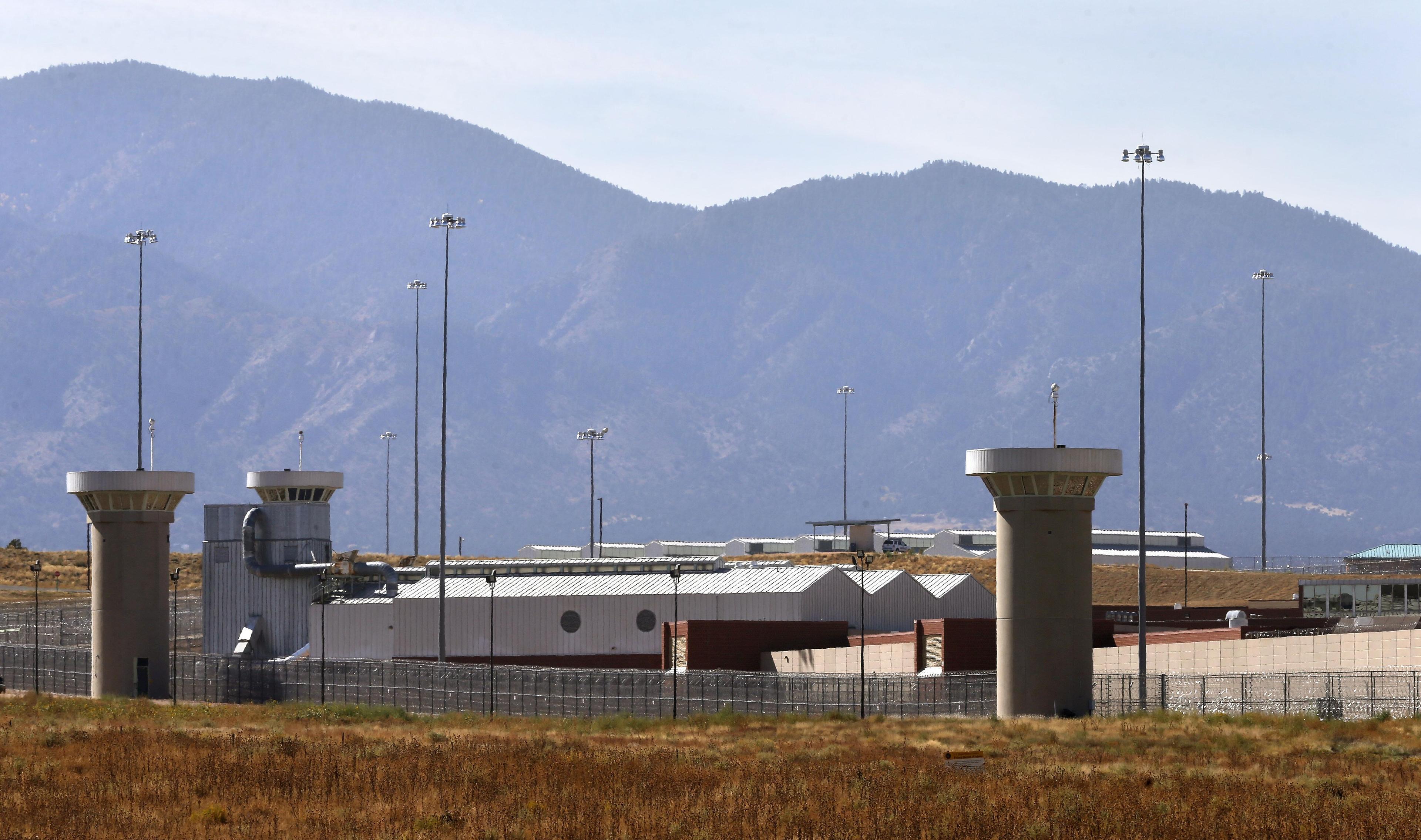
Mathias Mulumba likes to let people know about the times he failed the GED or how his first math class at Colorado Mesa University in Grand Junction had him “seeing stars.”
CMU “put me in the lowest class you can ever find … Math 090 with Professor (Shelly) Henson,” Mulumba recalls. “And I was like, ‘what in the world is she talking about?’ And she looked in my face and she's like, ‘Matthias, I don't think you understand anything I'm doing here.’ And I was like, ‘you’re right I don't understand anything.’ ”
Mulumba graduated from CMU in December with a business administration degree and even spoke at commencement. He was born in Kampala, Uganda, and is a first-generation student. He likes to tell stories of his academic challenges, and he’s become something of an evangelist for the importance of education and Colorado Mesa University’s ability to provide it to students like him.
The Grand Junction campus was among the universities to be designated a first generation-serving institution by the Colorado Department of Higher Education. First-generation students are generally considered any student whose parents did not obtain a four-year degree. The designation was created by the state legislature in 2024 with the passage of House Bill 1082. CMU made the cut because it has among the state’s highest enrollment of first generation students, with 47 percent of the student body made up people who are the first in their families to go to college.
Among four-year institutions, only Fort Lewis College in Durango (48 percent) and Metropolitan State University of Denver (58 percent) rank higher, according to state figures. First-generation students don’t always have stories like Mulumba’s. Many are from Mesa County and the Western Slope.
“I went through quite a bit of hardship with my mother. I lost my mother. I was acting out in school. I had multiple academic delinquencies, truancies. I failed my freshman year of high school classes,” Kayla Wirth, a senior studying accounting said.
Wirth went to Central High School in Grand Junction and found a passion for accounting, which pushed her to get into CMU. She’s set to graduate in the spring but already has a job in town.
However inspiring the stories, though, successfully educating first-generation students is difficult. Dropout rates are higher than students whose parents went to college. CMU President John Marshall said it’s not enough to just recruit first-generation students.
“We pay a lot of attention to retention from freshman to sophomore year,” Marshall said. “That's the real danger zone. If you can keep them into their sophomore year, really the third semester, you're pretty much out of the woods.”
‘Tough sledding’
Marshall said CMU values its role educating first-generation students, but the university is mindful of the challenge.
“If you look at the statistics about students who get a college degree, the best predictor of those who get a college degree is whether their parents got a degree,” he said. “More powerful than race or income or geography. And, specifically, if their mom got a college degree. So if your mom got a college degree, your odds of getting a degree are very, very high, and if neither parent got a college degree, it's tough sledding.”
CMU’s retention rate, the percentage of students who make it back for their sophomore year, has been climbing for years. It’s gone from around 53 percent in 2005 to 76 percent in 2021, the most recent year for data. Graduation rates have similarly climbed and, while CMU trails behind bigger institutions in Colorado or more prestigious institutions elsewhere in the nation, CMU also has substantially more first-generation students by percentage of enrollment.
“I would argue that the role of those institutions, whether it's the flagships or the elites or the privates, what they've really done over time is they've served as a replication machine where grandma and grandpa have 2.1 kids, go to elite institution, have 2.1 kids go to same elite institution who have 2.1 kids,” Marshall said. “They're not changing anything. They're simply replacing themselves economically, politically, socially, and what we're trying to do is something very different.”
To keep those retention and graduation rates climbing, Marshall said CMU invests heavily in the campus community by trying to hire first-generation faculty and coaches. They also have lengthier orientation programs and do outreach to Colorado high schools to get students familiarized with the idea before they sign up for classes. Most importantly, Marshall said, they take an aggressive approach to making the financial side of college as easy as possible.
“We spend an inordinate amount of time around financial aid because that is such a huge barrier. I mean, if you've got a kid who doesn't have two nickels to rub together a thousand-dollar delta on their bill, it may as well be a million,” he said.
Colorado Mesa also offers robust scholarship packages for lower income students, having launched the “CMU Promise” that covers tuition for students from families making less than $70,000 a year. They also launched their own financial aid calculator in early 2024 in an attempt to circumnavigate problems with the federal financial aid system.
Soliciting feedback
The university also continues to solicit feedback on how to better serve students, including a first-gen task force. Last fall, the task force heard a report from Isa Sanchez. Sanchez, who attended high school in Grand Junction before getting a theater and psychology degree from CMU, helped on a research project about first-generation students on campus.
“As I did get to college and having to sometimes navigate things without a parental guide to look to answer some of the questions, the identity became more and more prevalent to me,” Sanchez said. “But I think at the same time, that also it created a lot of motivation in me to keep pushing forward despite any challenges I faced and to make the status of being first-gen, something to be proud of and not solely an obstacle.”
Sanchez interviewed students on campus for the report. She said first-gen students face pressures to enter the workforce early, which can make it tempting to skip or dropout of college. She also echoed Marshall’s concerns about the barriers of financial aid. Specifically, she thinks continued outreach to high school students will better set them up to understand the hurdles of academia.
“All the students that (are) a first-gen are in a completely different world in terms of their upbringing and their frame of reference when it comes to higher level education,” Sanchez said. “Extra care needs to be taken when designing resources or designing at institutions that can serve all students, not just one whose parents haven't gone to college.”









